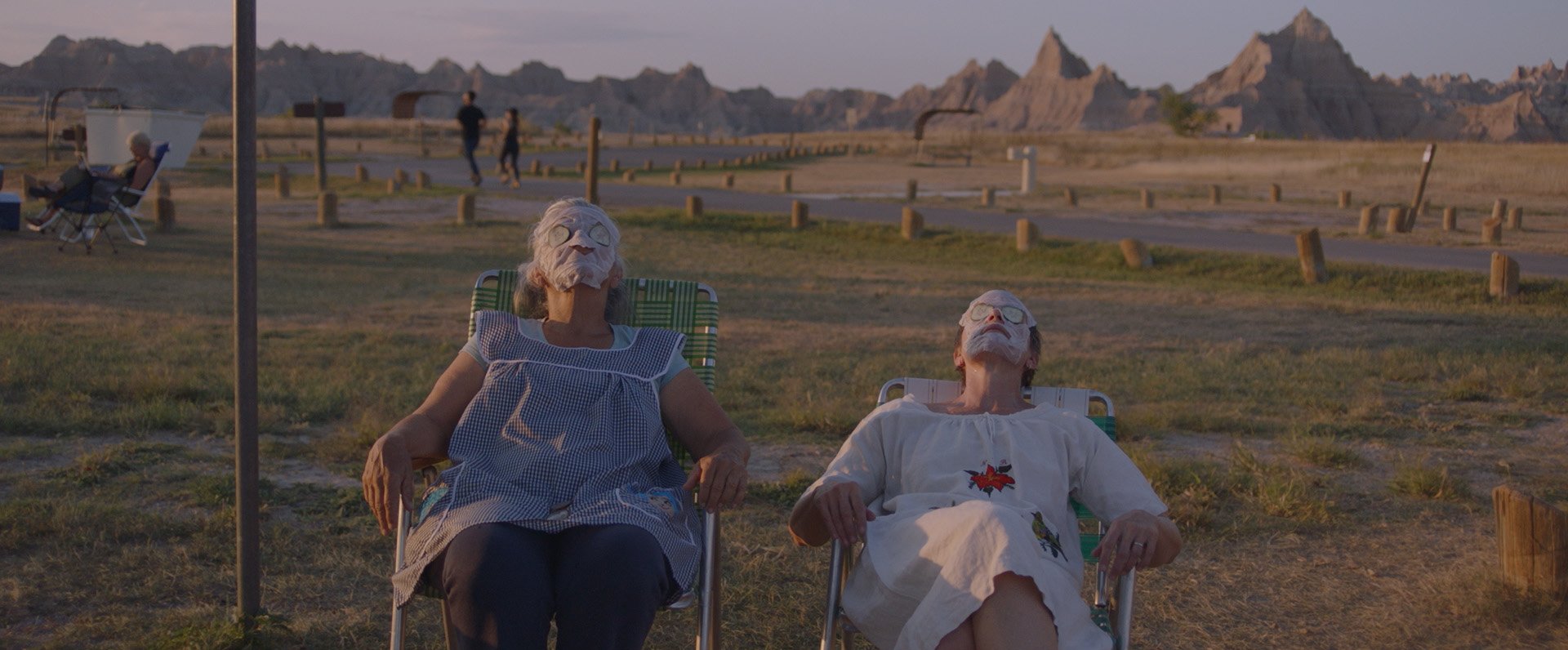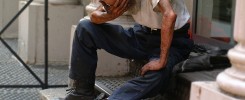An ongoing series combining the two core beliefs that guide all of my writing: (1) people of faith can and should meaningfully address homelessness, and even end it, and (2) film both reflects and shapes culture, and can be a window to the divine in all things. (See my side-project Theophany for more reflections on film.)
2020 Best Picture WINNER Nomadland is a gorgeous, unique film that blurs the lines between drama and documentary. Using only a few career actors placed into a community of people asked to play versions of themselves, the film achieves a level of authenticity and poignancy that its subject deserves, eliciting honesty and truth more than drama or a Hollywood catharsis.
I was especially drawn in by this movie’s nuanced depiction of homelessness. In one sense, this is not what most picture as “homelessness.” These are not individuals in urban settings with tents, pushing carts, sleeping under freeways, and panhandling. This is an entirely different version of homelessness, offering us an opportunity to broaden our understanding and our associations with the word. At the same time, its nuances and humanizing touches can actually be applied to people who experience all types of homelessness, even the “typical” ones.
The specific image most often conjured in our imaginations of the “homeless person” is a 40-50 year old white man with an overgrown hair and beard, oversized unwashed clothes, pushing a cart full of belongings and maybe some recyclables. This limiting caricature has been incomplete for many decades now, even if we’re only just starting to question it. Homelessness is disproportionately black, much like our prison populations. (There are more white men numerically in both situations, yes, but when compared to the racial demographics of the general population, black men are starkly overrepresented in these populations.)
Homelessness is also getting both younger and older, with the largest growing sub-populations being families and seniors. And especially since the 2008 recession, “invisible homelessness” has become an unquantifiable piece of homelessness: people who “couch surf” or sleep in their cars, often undetected by homeless counts, and who often lead otherwise “normal” lives with jobs. As COVID settles down and we start to see rent coming due for people who have been jobless, and student loan collection restarts, we may be in for another crisis that leads to all new and old manners of homelessness. Nomadland gives voice to an increasing subset of this subset: those who live in vans and travel across the U.S. seasonally to take temporary work and live in communal, supportive settings.
The community that Fern (Frances McDormand) finds and begins to form around her is truly remarkable, reminiscent even of the early church in Acts, sharing meals and offering contemplation and support. All of these very broken individuals at various stages of healing who just hold space and grace for one another. An early scene shows the nomads in the Arizona desert. Fern is on a walk, and a group that’s sharing stories around a fire invites Fern over to join them. She declines, stating that she’s just enjoying a walk in private. And they don’t pressure her, they don’t make her feel guilty for wanting to be alone in that moment. There’s a respect for isolation and boundaries but with a communal safety net–even when one community member is asking for privacy, Fern has to push through because she has a flat tire, and the friend obliges.

The way I’ve described this film is that it’s about people who take charge of their own displacement. Trauma, financial hardship, and other factors force the decision, but Fern and the others in this film make a life out of it that is uniquely their own, that has beauty, connects them with the earth and with one another, and there’s something quite amazing in its simplicity. They have found something that we may have lost.
So many of these lessons and realities apply to the people we see in our urban settings experiencing a more visible, “traditional” form of homelessness. We are accustomed to looking at homelessness in one of two ways:
- They are lazy, and need to pull themselves up by their own bootstraps
- They are victims of an unjust system, and in need of (my) saving
Nomadland is at its best when it is showing how the truth of humanity in difficult circumstances is neither of those two options; that while there is trauma and economic injustice leading people to particular hardships and realities, they are nonetheless lives being lived by unique, creative, resilient, and hopeful people.
If there is anything that people experiencing homelessness are not, it’s helpless. The amount of energy, fortitude, and resilience it takes to survive without housing exceeds what most of us will ever have to face. People experiencing homelessness deserve to be treated with agency, with priority given to their hopes, their wants, and not what we impose on them. Like Fern and the nomads, people experiencing homelessness form communities, share values, and live lives. They take charge of their own displacement, and they may want and hope for something new, or even something “traditional.” But in order for any intervention to be successful and life-giving, it has to be on their own terms.

Like Fern who goes to sleep in her van even with access to a bed, I’ve known people who move into apartments and still sleep on the streets some nights because it’s what they know. I know one creative soul who set up their tent and sleeping bag in the middle of their apartment, not quite ready for the softness of a bed, but appreciating the safety of a locking door.
The beauty of a film like Nomadland is that it can generate the same type of myth-busting empathy that time spent in person with people experiencing homelessness can. It can act as a bridge to change, within us as viewers individually and collectively, and ultimately in how that change can inform policies that affect the most vulnerable. I’m grateful for the thoughtfulness and honesty of Nomadland, showing people in all of their brokenness, power, need, resilience, and kindness.



Comments are closed.